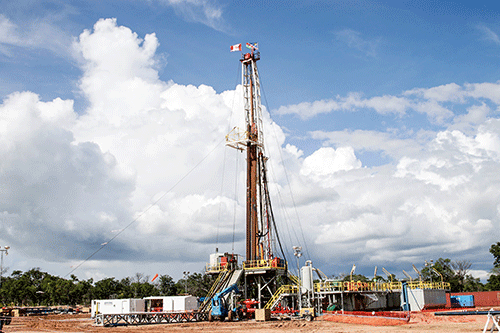ReconAfrica, the Canadian company drilling for oil in north-eastern Namibia, has squashed unsubstantiated rumours surrounding its exploration activities.
The unconfirmed gossip includes speculation that drilling has ended unsuccessfully and that the company is packing up local operations, given the absence of foreign workers at drilling sites.
However, the international company currently looking for commercial oil quantities in the Kavango basin clarified that it is currently interpreting available data obtained from completed exploratory drilling in order to determine where to drill next. In fact, the company’s field operational activities are scheduled to recommence once it starts with its next drilling campaign.
“Once the data has been processed and integrated with well data, it is interpreted to understand an integrated image of the geology that will assist with directing the rest of the project, including building a prospect portfolio and identifying the next well locations,” reads a project update from the company.
The company update added that interpreted data assists with de-risking in large exploration areas, such as ReconAfrica’s licence area, and helps its team rank prospective locations based on size, complexity and geological likelihood.
“Once interpretation is complete, a geological model is built which assists in evaluating the sub-surface, building a prospect portfolio, and guiding the next drilling locations”, the recently-published update reads.
Meanwhile, ReconAfrica spokesperson Mwanyengwa Shapwanale explained the absence of foreign workers – which seems to have fuelled speculative rumours
in surrounding communities – on the company’s drilling sites.
“Any foreign workers who have left Namibia have done so after completing their work on our 2D seismic and eFTG (Enhanced Full Tensor Gravity) activities. Foreign workers are needed at different stages of the exploration programme as technical specialists, and are brought in when needed. As noted in press releases dated 3 April and 24 May, the 2D seismic and eFTG programmes have reached their planned conclusion, and we are now in the process of integrating all of our subsurface data. We expect to be drilling again later this year when additional local and foreign workers will once again be required,” said Shapwanale.
Moreover, following the successful completion of a two-year 2D seismic acquisition programme covering more than 2 700 line kilometres, an eFTG programme covering nearly 5 000 km2 and the drilling of three wells, ReconNamibia has entered the project’s data processing, integration and interpretation phase. “With this more comprehensive sub-surface analysis and evaluation, the company is now focused on developing a prospect portfolio and planning a multi-well drilling programme. In 2021, ReconNamibia successfully drilled three stratigraphic wells, the results of which identified a working petroleum system with multiple types of hydrocarbons: oil, natural gas and natural gas liquids. We commenced our two-year geophysical subsurface data acquisition programme with the ultimate goal of drilling wells that have commercial accumulations of oil and gas. Historically, it is usual in the exploration of new basins to undertake similar
drilling, data acquisition and evaluation programmes to ascertain the existence of potential working petroleum systems and subsequent commercial discoveries”.
ReconAfrica stated that integrated sub-surface analysis and evaluation is necessary to obtain a more accurate understanding of
the hydrocarbon potential of its licence area.
This requires extensive data processing, computer modelling and interpretation, and demands less on-the-ground operational activities.
“In collaboration with and at the invitation of the Namibian Government, we remain committed to the exploration and development of natural resources in the Kavango East and Kavango West regions,” the update stated.
ReconAfrica also noted that written project updates were provided to key stakeholders, including the Kavango East and Kavango West Regional Governors’ offices, regional councillors, traditional authorities and their respective village representatives, farmers unions and associations, and surrounding conservancies.
– ebrandt@nepc.com.na



